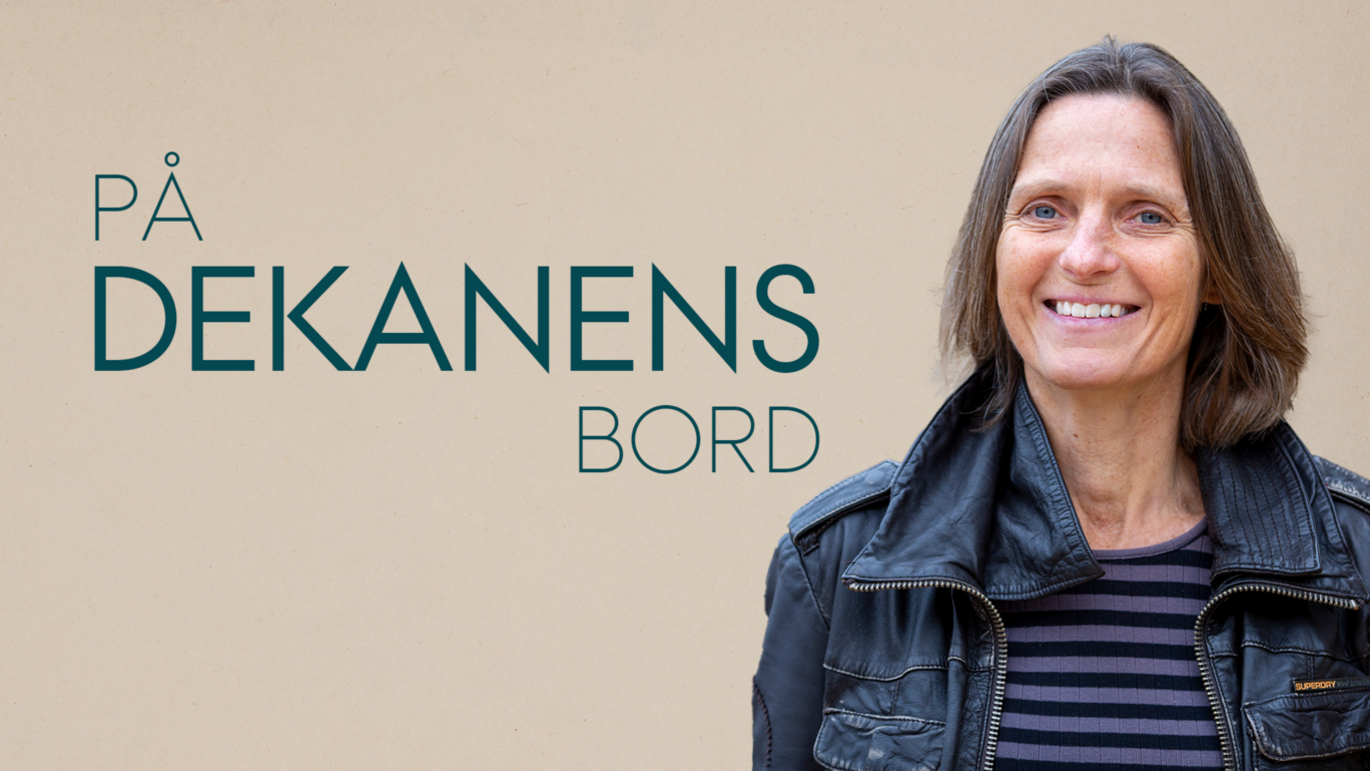From the Dean's Desk: research support just for Health
We’re taking the first steps towards providing academically strong support for funding applications at Health. Each department will be assigned permanent staff who know the researchers as well as the grants – and who can ensure the right match.

"From the Dean’s Desk" – a column in Inside Health
Shortly after a meeting in the Academic Council at which we talked about involvement, I received an email from one of the members of the council. She had thought about our discussions and suggested that I write directly to employees at Health in the faculty's newsletter. She suggested that I could write about some of the initiatives currently on my desk, so that all employees can keep abreast of some of the things we’re working on at the faculty.
I think it's a brilliant idea - thank you! I intend to continue this column once a month from now on.
One important task I’m working on at the moment is to build support for funding applications at Health. Preparations are well under way in the faculty management team, and here is what we know so far:
We’ll help the faculty’s researchers with applications for a wide range of grants within health sciences. Each department will be allocated permanent staff who know the department and the researchers’ academic strengths and can link the researchers with relevant grants.
Researchers working on or with units in the region must also be able to obtain assistance. Central Denmark Region is an important stakeholder and partner for us – also in this context.
But there’s already a research support office at AU, so why do we need one at Health as well?
The background is as follows: Last year, the senior management team decided that AU's central research support office should focus solely on applications for 19 named grants, including EU funding and selected programmes under Innovation Fund Denmark and the Danish National Research Foundation.
In future, the faculty will be responsible for offering support to researchers who wish to apply to other foundations such as the Lundbeck Foundation, the Novo Nordisk Foundation, the Leo Foundation, Trygfonden and many others.
This decentralisation will come with new opportunities. For example, support will be closer, there’ll be room for individual departmental considerations and a deeper knowledge of the individual’s field of research. We’ll also set up a robust application support service with a high level of competence and an academic environment to develop in.
We’ll ensure the support is close at hand by making sure that the staff member(s) affiliated with a department is/are physically present at the department for as long as is relevant. This has yet to be agreed in more detail with the department management teams, as the support service must be designed to meet the needs of individual departments.
This is about as much as we know at this point. There are still many unknown quantities in the equation. For instance, we have yet to decide which services should be offered or how they should be prioritised.
We have therefore invited both early career researchers and experienced researchers to a workshop on Tuesday to tell us what they think is most important for them as researchers. Should we primarily provide help to early career researchers or more established researchers? Should we focus on specific grants? And what is the amount limit?
This is important input that we in the faculty management team will take into account when we need to make decisions in the spring, and you’ll be hearing much more about this initiative as we move forward.
We know that help with funding applications is just one element in the broad research support, so this is the first step on the way to more coherent and collaborative research support at Health.